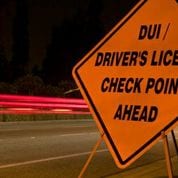The recent North Carolina Supreme Court decision in State v. Heinen, clears up an otherwise unprecedented issue facing search and seizure law. Specifically, the North Carolina Su preme Court held in Heinen that an officer has reasonable suspicion to conduct a stop when an objectively reasonable police officer, considering the totality of the circumstances and all the facts surrounding the situation, could have formed a reasonable suspicion that the persons stopped were committing a statutory violation, even though the officer may be later mistaken in his belief that a statutory violation is or had been occurring. State v. Heinen No. 380 PA 11, 2012 N.C. LEXIS 1003, at *1 (Dec. 14, 2012)
preme Court held in Heinen that an officer has reasonable suspicion to conduct a stop when an objectively reasonable police officer, considering the totality of the circumstances and all the facts surrounding the situation, could have formed a reasonable suspicion that the persons stopped were committing a statutory violation, even though the officer may be later mistaken in his belief that a statutory violation is or had been occurring. State v. Heinen No. 380 PA 11, 2012 N.C. LEXIS 1003, at *1 (Dec. 14, 2012)
In Heinen, an officer stopped defendant’s vehicle after he witnessed defendant’s vehicle had one taillight burnt out, which the officer believed was a violation of N.C.G.S. § 20-129(d). The officer wrote the defendant a ticket and before the defendant was released, the officer became suspicious when defendant and his passenger disagreed as to their ultimate place of destination. The officer asked defendant and his passenger if he may have their consent to search the vehicle to which both parties responded in the affirmative. A search of the vehicle revealed items of contraband, including bags of cocaine.S tate v. Heinen No. 380 PA 11, 2012 N.C. LEXIS 1003, at *1 (Dec. 14, 2012)
The defendant sought to have the contraband discovered during the search suppressed on the ground that there was no reasonable suspicion to believe he had been violating N.C.G.S. § 20-129(d). The trial court held the contraband may not be suppressed based on the officer having reasonable suspicion to believe defendant was violating the statute because video recordings from the officer’s patrol car showed the right brake light was not functioning at the time of the stop, but suddenly flickered back on immediately prior to the vehicle coming to a complete stop. N.C.G.S. § 20-129(d)(2012).
However, the court of appeals reversed the trial court and suppressed the evidence based on the court concluding the officer did not have reasonable suspicion defendant was committing a violation of the statute to conduct a brief stop and investigation under the Fourth Amendment to the U.S. Constitution; the court of appeals based this decision on a statutory interpretation of N.C.G.S. § 20-129(d) focusing on the specific language of the statute, which the court thought mandated only one brake light that could be incorporated into two or more rear lamps from the language “a” brake light. Thus, the court of appeals held that since only one brake light was needed, no reasonable suspicion existed for the officer to believe a violation had occurred.
The North Carolina Supreme Court reversed the court of appeals and held the evidence was admissible, choosing to rely heavily on the Eighth Circuit U.S. Court of Appeals reasoning in United States v. Martin. In Martin, the Eighth Circuit held that so long as an officer’s mistake of law is objectively reasonable and so long as the officer reasonably suspects a violation is occurring based on external facts the officer believes but is mistaken is a violation of the statute, the stop is not a seizure in violation of the Fourth Amendment. State v. Martin 411 F.3d 998 (8th Cir. 2005).
The North Carolina Supreme Court found the reasoning in Martin persuasive because the court believed the decision in Martin to comport with the overall command of the Fourth Amendment, which is the law enforcement agents act reasonably when conducting a search.
Also, the court thought the Supreme Court’s seminal case interpreting reasonableness of seizures, Terry v. Ohio, does not require an officer actually to witness a violation of the law before making a stop, and that this proposition extends not only to innocent conduct that may warrant further investigation under Terry, but also to substantive issues regarding interpretation and enforcement of the law. Also, the North Carolina Supreme Court thought the purpose of Terry stops which encourage law enforcement to prevent potentially dangerous or criminal activity would be thwarted if officers were not allowed to make stops in situations where they were mistaken as to the laws substantive requirements of violation. Terry v. Ohio 392 U.S. 1, 22 (1968).
For more information about traffic offenses, follow this link.
If you or a loved one has been charged with a crime, contact the law offices of Robert J. Reeves, P.C. to consult with one of our criminal attorneys toll-free at 877-374-5999 for more information.
